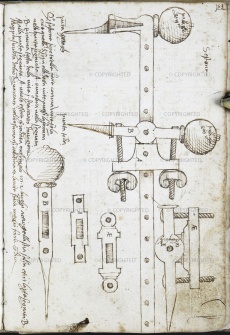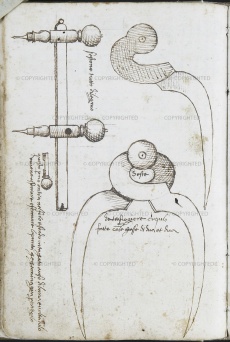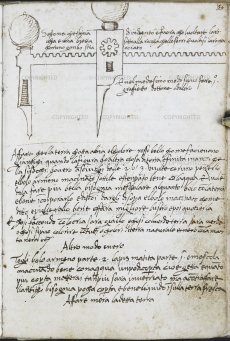Beam Compasses
From Inventions
(Difference between revisions)
m (moved Beam compass to Beam Compasses) |
|||
| Line 14: | Line 14: | ||
|strumentiesistenti= | |strumentiesistenti= | ||
| + | |||
| + | - Museum of the History of Science, Oxford <br> | ||
| + | [http://emu.mhs.ox.ac.uk/Display.php?irn=2770&QueryPage Museum of the History of Science, Oxford, inv. 51264]<br> | ||
| + | |||
| + | |||
|link= | |link= | ||
| + | http://www.tpub.com/engbas/2-11.htm (English)<BR> | ||
| + | http://www.mathsinstruments.me.uk/page63.html (English) | ||
| + | |||
|immagini= <gallery widths=230 heights=368 perrow=3> | |immagini= <gallery widths=230 heights=368 perrow=3> | ||
Current revision as of 11:12, 8 September 2010
Name currently used. In the Renaissance it was called sestone (sextant).
Contents |
Historic Period
XV-XVI century.
Description
Compass for drawing large circumferences composed of a long rod with two cursors sliding along it, carrying a fixed point and a pen point.
Bibliographical Resources
Della Volpaia, Benvenuto, Macchine e strumenti, ms., XVI secolo, Venezia, Biblioteca Marciana, It. IV, 41 (= 5363), c. 53r-v, 56r.
Existing Instruments
- Museum of the History of Science, Oxford
Museum of the History of Science, Oxford, inv. 51264
Links (External)
http://www.tpub.com/engbas/2-11.htm (English)
http://www.mathsinstruments.me.uk/page63.html (English)
Images
Author of the entry: Filippo Camerota



